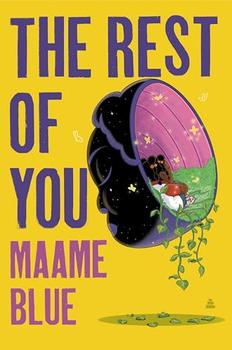Summary | Excerpt | Reading Guide | Reviews | Beyond the Book | Readalikes | Genres & Themes | Author Bio

She brings two bowls of wine and they drink together in companionable silence. The guard has stopped snoring, his sleep deep and restful. The pirate suspects the girl has something to do with that. Bold and coy and clever.
Some nights she brings more than bread. Oranges and plums secreted in the pockets of her gown. Pieces of candied ginger wrapped in paper laced with stories.
Some nights she stays until moments before the changing of the guards.
(The daytime guard has begun leaving his crime serials within reach of the cell's walls, ostensibly by accident.)
The shorter guard paces tonight. He clears his throat as though he might say something but says nothing. He settles himself in his chair and falls into an anxious sleep.
The pirate waits for the girl.
She arrives empty-handed.
Tonight is the last night. The night before the gallows. (The gallows are also a metaphor, albeit an obvious one.) The pirate knows that there will not be another night, will not be another changing of the guard after the next one. The girl knows the exact number of hours.
They do not speak of it.
They have never spoken.
The pirate twists a lock of the girl's hair between his fingers.
The girl leans into the bars, her cheek resting on cold iron, as close as she can be while she remains a world away.
Close enough to kiss.
"Tell me a story," she says.
The pirate obliges her.
There are three paths. This is one of them.
Far beneath the surface of the earth, hidden from the sun and the moon, upon the shores of the Starless Sea, there is a labyrinthine collection of tunnels and rooms filled with stories. Stories written in books and sealed in jars and painted on walls. Odes inscribed onto skin and pressed into rose petals. Tales laid in tiles upon the floors, bits of plot worn away by passing feet. Legends carved in crystal and hung from chandeliers. Stories catalogued and cared for and revered. Old stories preserved while new stories spring up around them.
The place is sprawling yet intimate. It is difficult to measure its breadth. Halls fold into rooms or galleries and stairs twist downward or upward to alcoves or arcades. Everywhere there are doors leading to new spaces and new stories and new secrets to be discovered and everywhere there are books.
It is a sanctuary for storytellers and storykeepers and storylovers. They eat and sleep and dream surrounded by chronicles and histories and myths. Some stay for hours or days before returning to the world above but others remain for weeks or years, living in shared or private chambers and spending their hours reading or studying or writing, discussing and creating with their fellow residents or working in solitude.
Of those who remain, a few choose to devote themselves to this space, to this temple of stories.
There are three paths. This is one of them.
This is the path of the acolytes.
Those who wish to choose this path must spend a full cycle of the moon in isolated contemplation before they commit. The contemplation is thought to be silent, but of those who allow themselves to be locked away in the stone-walled room, some will realize that no one can hear them. They can talk or yell or scream and it violates no rules. The contemplation is only thought to be silent by those who have never been inside the room.
Once the contemplation has ended they have the opportunity to leave their path. To choose another path or no path at all.
Those who spend their time in silence often choose to leave both the path and the space. They return to the surface. They squint at the sun. Sometimes they remember a world below that they once intended to devote themselves to but the memory is hazy, like a place from a dream.
More often it is those who scream and cry and wail, those who talk to themselves for hours, who are ready when the time comes to proceed with their initiation.
Excerpted from The Starless Sea by Erin Morgenstern. Copyright © 2019 by Erin Morgenstern. All rights reserved. No part of this excerpt may be reproduced or reprinted without permission in writing from the publisher.




There is no such thing as a moral or immoral book. Books are either well written or badly written. That is all.
Click Here to find out who said this, as well as discovering other famous literary quotes!
Your guide toexceptional books
BookBrowse seeks out and recommends the best in contemporary fiction and nonfiction—books that not only engage and entertain but also deepen our understanding of ourselves and the world around us.